Dr. Hoang Van – To love is to live
English - Ngày đăng : 14:39, 08/07/2024
1. Hello Dr. Hoang Van, I am delighted to meet you today. First of all, could you tell us a bit about your work at the Head Trauma Department at Cho Ray Hospital, where you have been working for almost 15 years?
Dr. Hoang Van: Hello! "Time flies" indeed. It feels like just yesterday that I started working at the Head Trauma Department at Cho Ray Hospital, and it has been 15 years now. The main tasks of doctors in the department include caring for, examining, treating, and performing surgeries for patients with head traumatic. Overall, it is quite strenuous and sometimes intense, as we often "race" against time to save patients' lives. But when you recognize this as your profession and your calling, it feels warm and fulfilling.

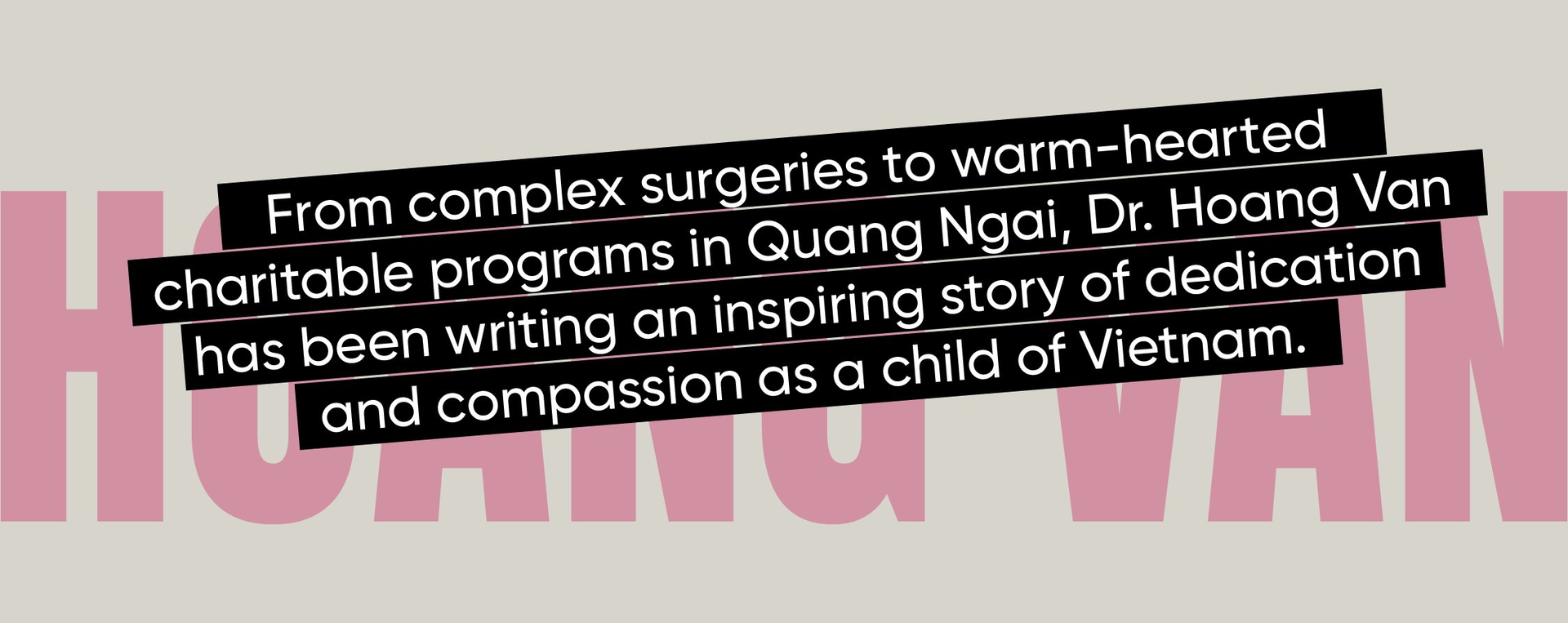
Dr. Hoang Van shared: Most of the polytrauma patients in the department have complicated conditions that threaten their lives. It is the experience, dedication, and responsibility of the doctors and medical staff in the department that have miraculously helped many patients survive.
2. During your time at the Traumatic Brain Injury Department, you must have encountered challenging cases. How did you handle them?
Dr. Hoang Van: Most of the polytrauma patients in the department have complicated conditions, and their lives are often at risk. It is the experience, dedication, and responsibility of the doctors and medical staff in the department that have saved many patients from the brink of death. However, working at Cho Ray Hospital, I have noticed that the difficulties and pressures are greatly reduced thanks to the excellent support from our mentors, colleagues, and other specialized departments within the Cho Ray ecosystem.
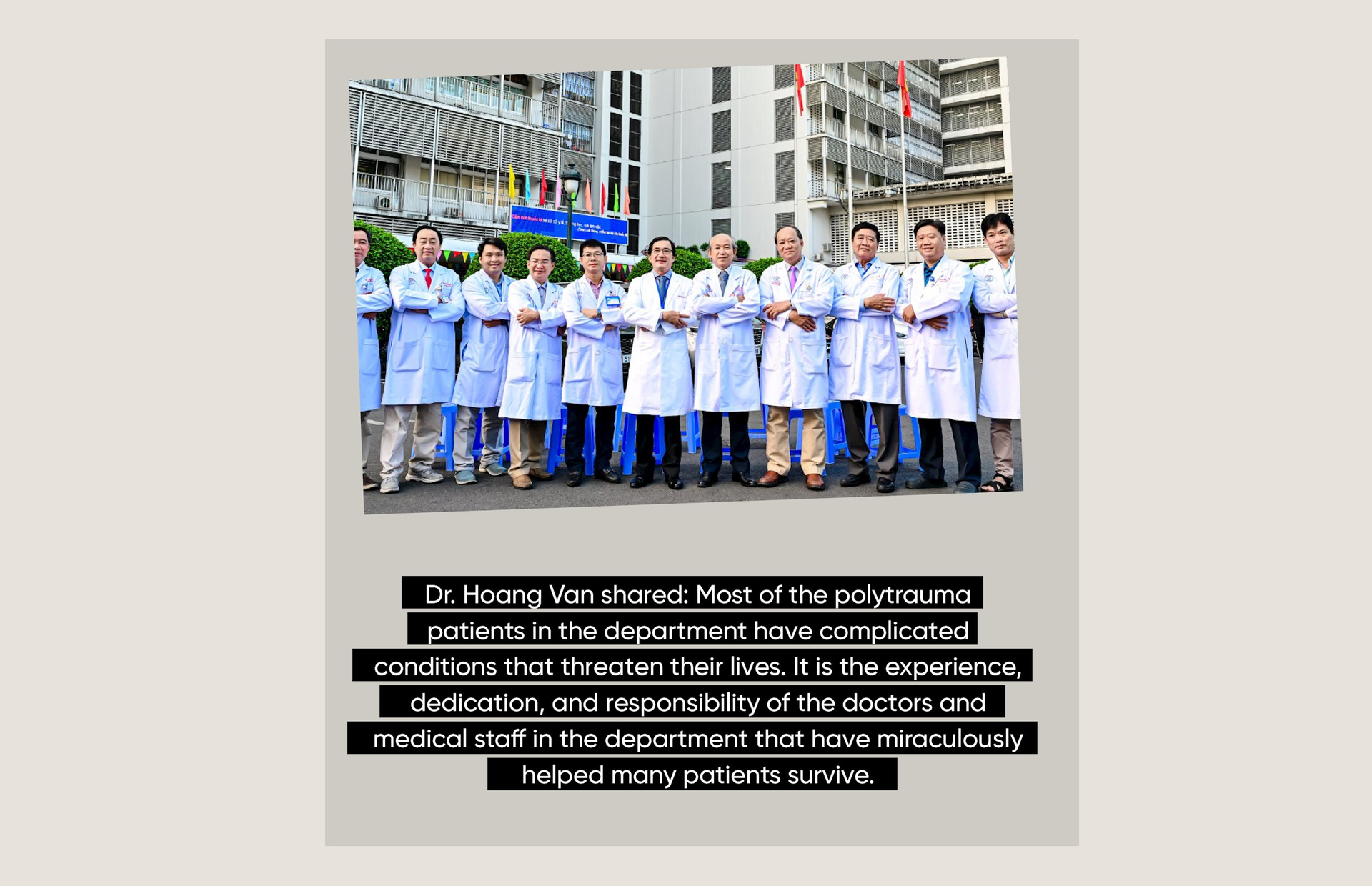
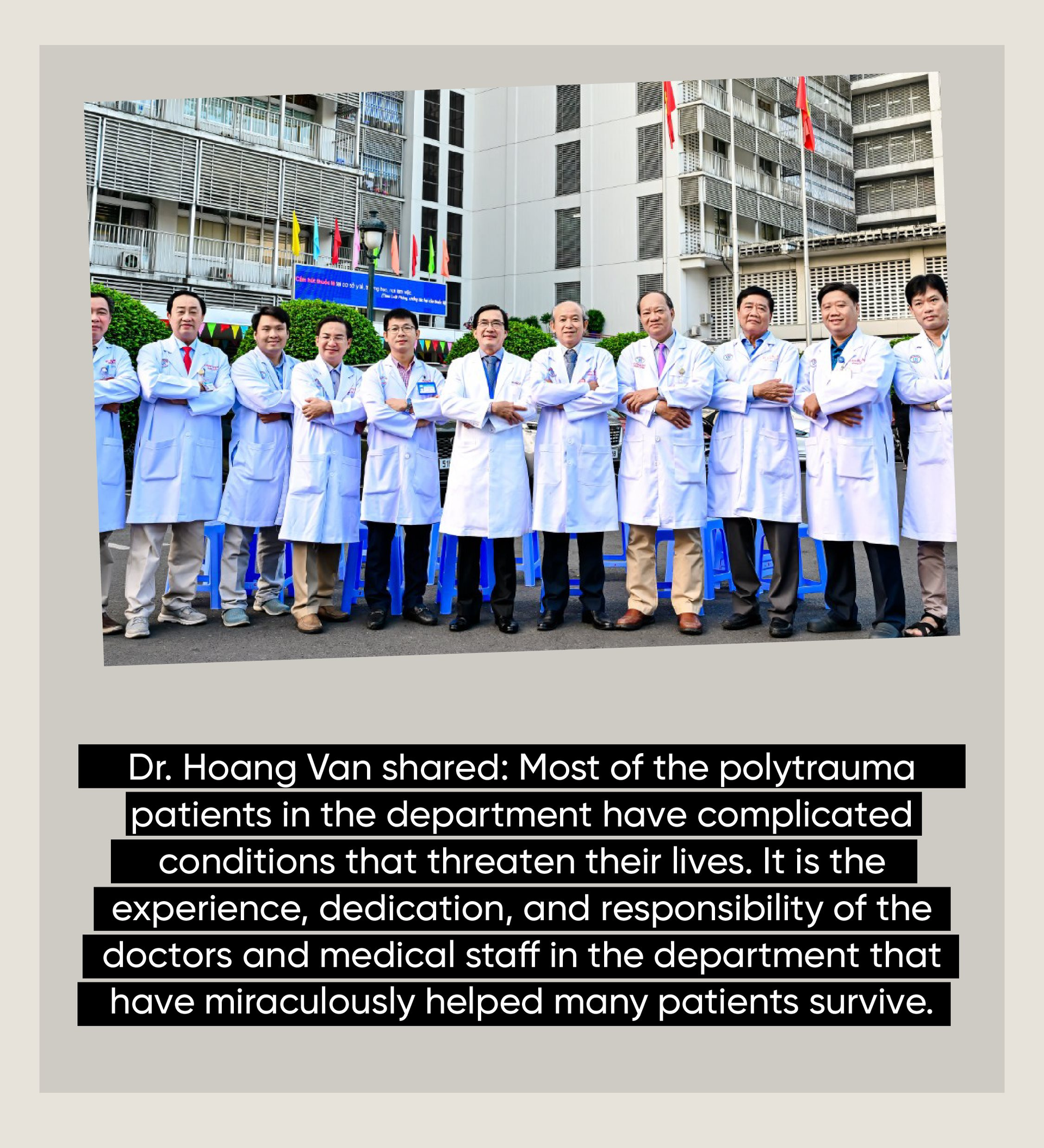
3. It is known that you have dedicated a lot of your heart to your hometown, Quang Ngai. What motivated you to participate in social and charitable activities there?
Dr. Hoang Van: I was born in Duc Pho district, Quang Ngai province. I had a period of surgical internship at the provincial general hospital, living and working with colleagues in my hometown. I think the difficulties due to the regulatory constraints of the provincial level, limited training mechanisms, and the economic hardships of my colleagues and the people have affected healthcare in the area. Therefore, I feel a personal responsibility to share my medical experience and knowledge, educate, and connect organizations to help my hometown of Quang Ngai.
4. Can you tell us about some specific activities as the Vice President of the Quang Ngai Fellow-Countrymen Association in Ho Chi Minh City?
Dr. Hoang Van: As the Vice President of the Quang Ngai Fellow-Countrymen Association in Ho Chi Minh City, I have participated in various activities such as joining fellow-countrymen associations and informing Quang Ngai natives in Ho Chi Minh City to facilitate networking and mutual assistance; Creating a bridge between the local authorities of Quang Ngai and the people, businesses, and medical professionals in Ho Chi Minh City with roots in Quang Ngai; Mobilizing charitable and social work for the people of Quang Ngai; Informing about the situation in our hometown to everyone in the associations; Connecting with fellow-countrymen associations from other provinces.
5. As the Vice President of the Quang Ngai Business Club, what contributions have you made to support the Quang Ngai business community in Ho Chi Minh City?
Dr. Hoang Van: As a doctor and a child of Quang Ngai, I was entrusted by the Quang Ngai business community to serve as the honorary Vice President of the Quang Ngai Business Club in Ho Chi Minh City to support health care activities for the business members. I simply aim to create opportunities for the business members to find the right doctors they need. Additionally, through my professional work environment, I have the chance to connect many businessmen from different fields, helping them network their businesses with a "zero-cost bridge," encouraging many businesses to eagerly participate in charitable activities for Quang Ngai.
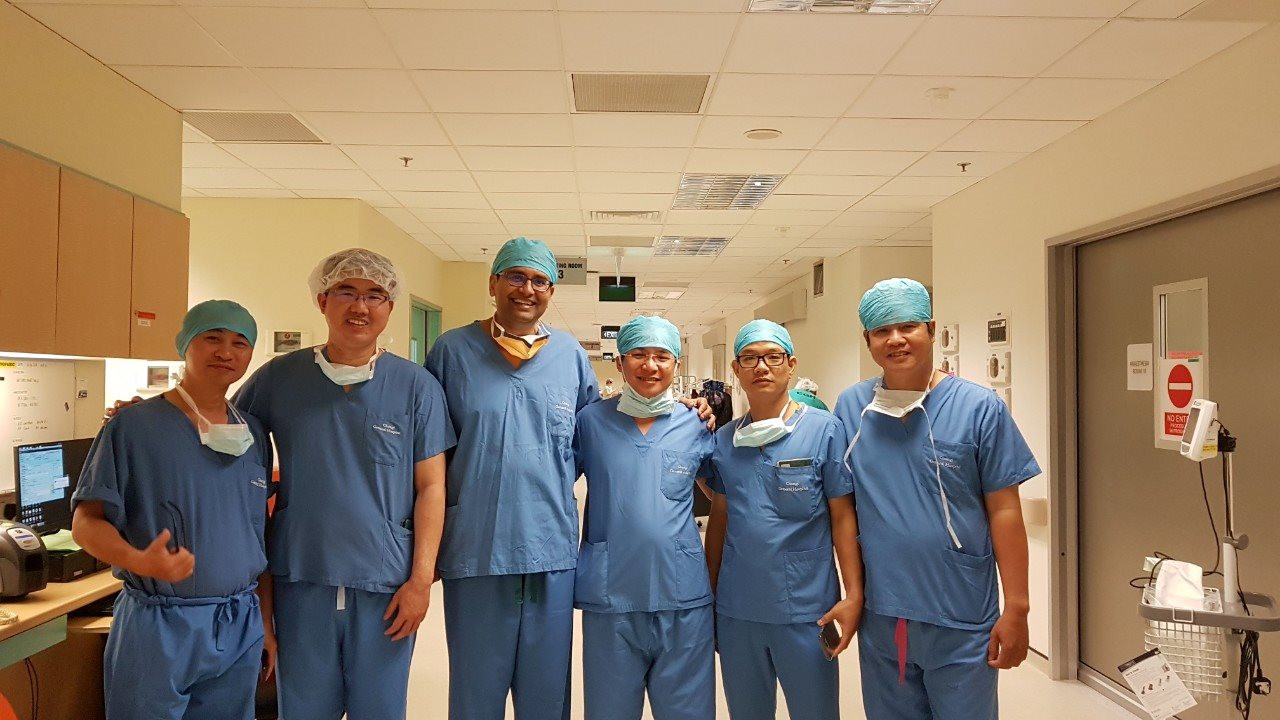
6. What about the activities of the Quang Ngai Medical - Pharmaceutical Club in Ho Chi Minh City, and what are the main goals the club is aiming for, Hoang Van?
Dr. Hoang Van: The activities of the Quang Ngai Medical - Pharmaceutical Club in Ho Chi Minh City are very practical and bring many benefits to the members, the healthcare sector, the people, and our hometown of Quang Ngai. The club's goals are to help members connect and support each other professionally; assist people from Quang Ngai with medical consultations and treatments at hospitals in Ho Chi Minh City; support the healthcare sector in Quang Ngai by connecting with medical units in Ho Chi Minh City, international humanitarian medical organizations, and skilled medical professionals nationwide. Club members contribute money, medicine, and effort to participate in charitable medical activities both in our hometown and in other localities across the country.
7. In your medical expertise, have you noticed any changes in the treatment methods for traumatic brain injuries over the years?
Dr. Hoang Van: Since I graduated from medical school (in 2000), there have indeed been many advancements in the treatment of traumatic brain injuries over the past two decades. Many doctors have received specialized training in neurosurgery, and numerous modern techniques and equipment have been applied, such as aneurysm clipping, DSA or Gamma knife treatment for carotid-cavernous fistulas post-trauma, intracranial hematoma evacuation through microscopy and Navigation system guidance. Many medical and technological advancements worldwide have been applied and invested in for medical treatment. I think that is a blessing.
8. How do you evaluate the development of neurosurgery in Vietnam today?
Dr. Hoang Van: (Ha ha…) Let me make an analogy for fun. If in 2000, our neurosurgery field was compared to elementary school level, now we have reached university level. We now have young, talented, and well-trained surgeons. We have centers equipped with modern machines and devices, and a new approach to organizing medical services with a patient-centric service model (many changes have already happened). However, as an insider, I believe our healthcare system still lacks synchronization and proper coordination of plans to optimize value for patients. Additionally, bureaucratic issues have prevented many patients from accessing modern science as they deserve in the 4.0 era.
.png)
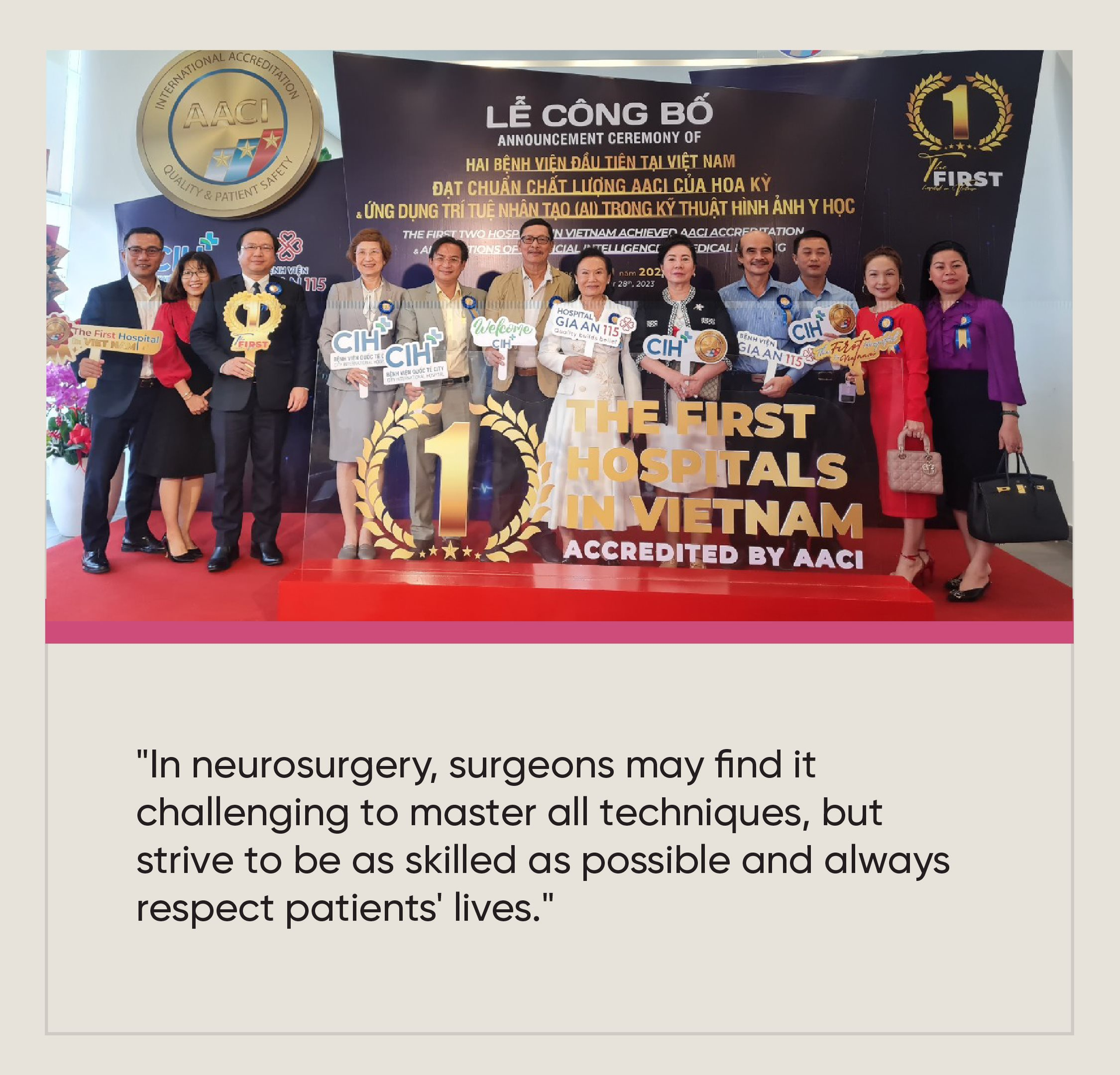
9. With your extensive experience in your field, do you have any advice for young neurosurgeons?
Dr. Hoang Van: Specifically for neurosurgery, I want to share with young surgeons that mastering all the techniques in the field may be difficult, but strive to become as proficient as possible. And always remember to respect the lives of your patients, as it is the virtue and ethics of a physician. Avoid the "star syndrome" that many young doctors often fall into.
10. Do you have any memorable stories related to a surgical case?
Dr. Hoang Van: In my 25 years of surgical practice, I cannot remember all the difficult cases my team and I have encountered. However, I recall a case involving the wife of a business executive who had a brain disease and a young child only 5 years old. The patient was very anxious and was considering switching to traditional medicine for treatment. I had to counsel, persuade, and delay the surgery by having the patient take medication for 2 weeks. Eventually, the surgery was performed successfully. The only sequela was a slight reduction in vision in one eye, but the patient was able to live normally, and after 2 years, everything stabilized. The point I want to make is that a physician, through their knowledge and experience, must choose the right approach and persist in counseling patients and their families to understand the severity of the illness and outline the solutions, opportunities, and risks. In this case, if the surgery had not been performed in time, the patient would have died.
11. As someone who always has a special affection for your hometown, Quang Ngai, do you have any future plans to continue contributing to your homeland?
Dr. Hoang Van: Despite looking young, but I have reached the age of "At fifty, one knows the will of heaven". I am always ready to do good things for my hometown. It's like when you love – to love is to live (you live the way you love), with no conditions attached.
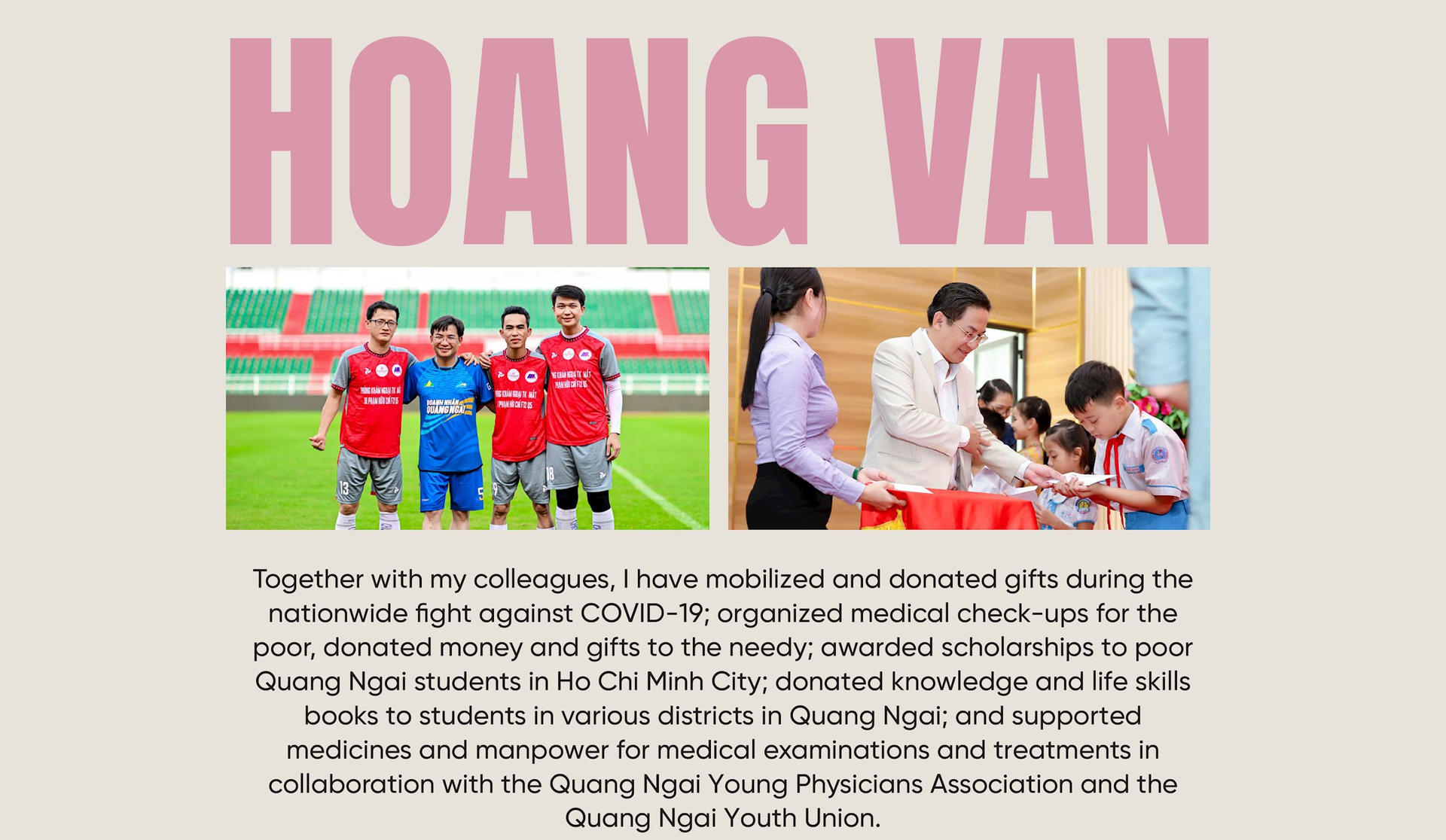
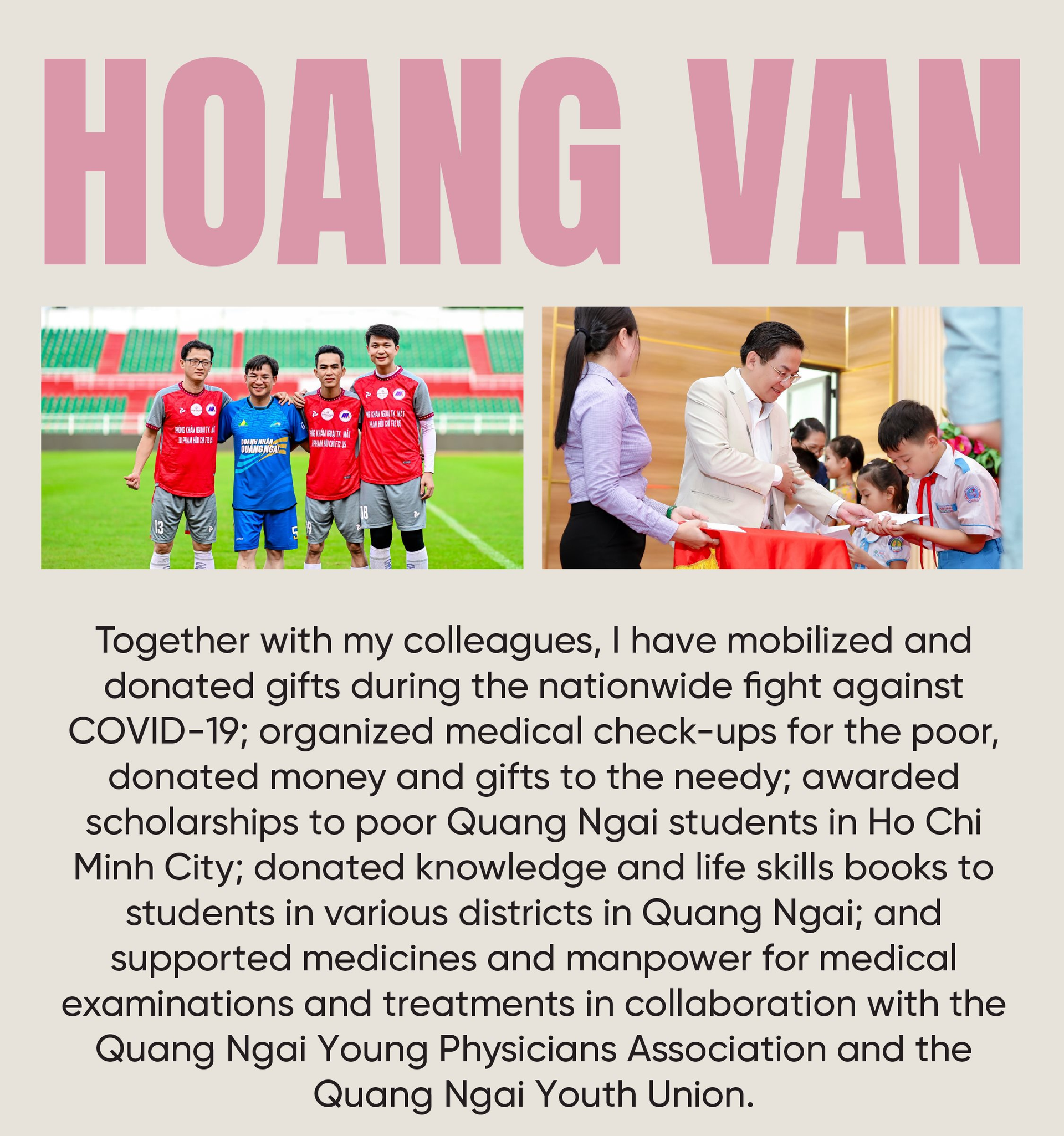
12. Is there a particular memory from your charitable activities in Quang Ngai that stands out for you?
Dr. Hoang Van: Charitable activities in Quang Ngai are annual and regular events for my colleagues and me. A recent memorable event was when I participated in the "Lighting Up the Dreams of Quang Ngai Youth for the 9th Time" scholarship award ceremony in 2023. During this event, a seventh-grade student who lost a leg at the age of five received a scholarship. Mr. Bui Duy Chinh, the team leader, and Ms. Hang, the daughter of journalist Nguyen The Ky, decided to give the student an artificial leg worth 45 million VND. On June 21, 2024, the student came to Ho Chi Minh City, and I sponsored their accommodation and medical check-ups. By June 26, 2024, the student had completed the prosthetic leg, could walk and ride a bike. All costs for the student's comprehensive health check-up and the carpal tunnel surgery for the student's mother due to heavy labor were fully sponsored by Minh Ngoc Medical Clinic.
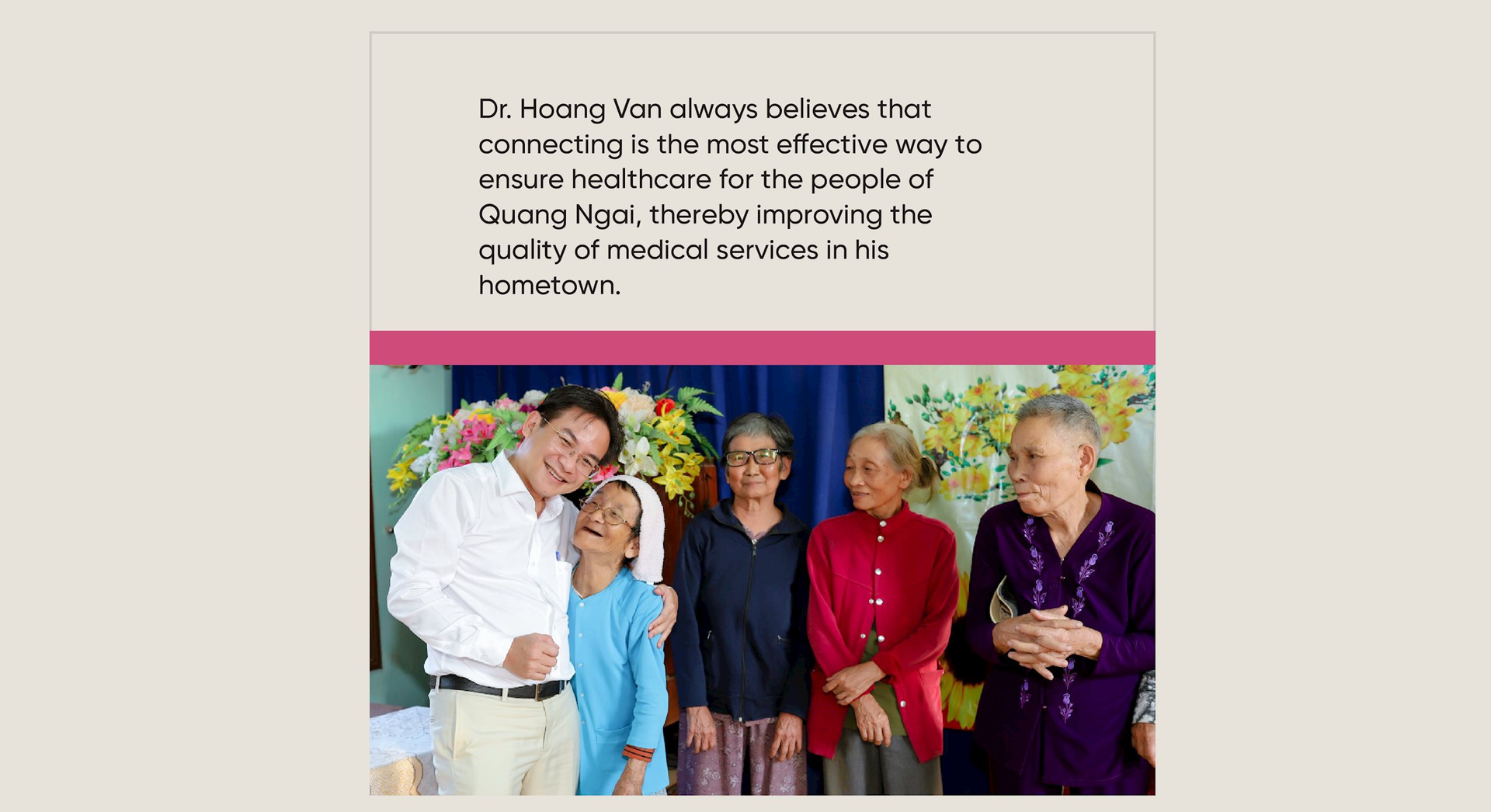

13. As the head of the Quang Ngai Medical - Pharmaceutical Club, what have you done to improve healthcare for the people of Quang Ngai?
Dr. Hoang Van: Connecting, connecting, and connecting is the quickest and most effective method for the Quang Ngai Medical - Pharmaceutical sector to ensure better healthcare for the people. In Ho Chi Minh City, club members are talented individuals in the field with good international relations. As the head of the Quang Ngai Medical - Pharmaceutical Club, I have the ambition and desire to build and develop the club to support human and material resources for the medical - pharmaceutical sector in our hometown. Club members have also established quite modern clinics in our hometown with high expertise to promptly support the people.
14. What are your thoughts on combining medical expertise with social activities? How do you balance these two fields?
Dr. Hoang Van: Che Lan Vien's poem " The Song of the Ship" has two lines that I really like:
“When we stay, it’s just land;
When we leave, the land becomes a soul.”
When you love your hometown or any place, dedicating your affection to that place is normal and understandable. And when you understand the difficulties in that place, dedicating much effort and supporting activities is also normal. The talented musician Trịnh Công Sơn once wrote, "Crossing the bridge to live on this side, then remembering the other side..." Perhaps in that state of "distance," one feels more loving and humane. I think the most beautiful love exists beyond limits and conditions. With this understanding, meeting, sharing expertise with people, and connecting many people to do something good become necessary but normal activities. Balancing professional work and charitable work requires compassion, placing love at the forefront. Personally, I am fortunate to have the understanding and support of my life partner, who is always by my side and supportive.
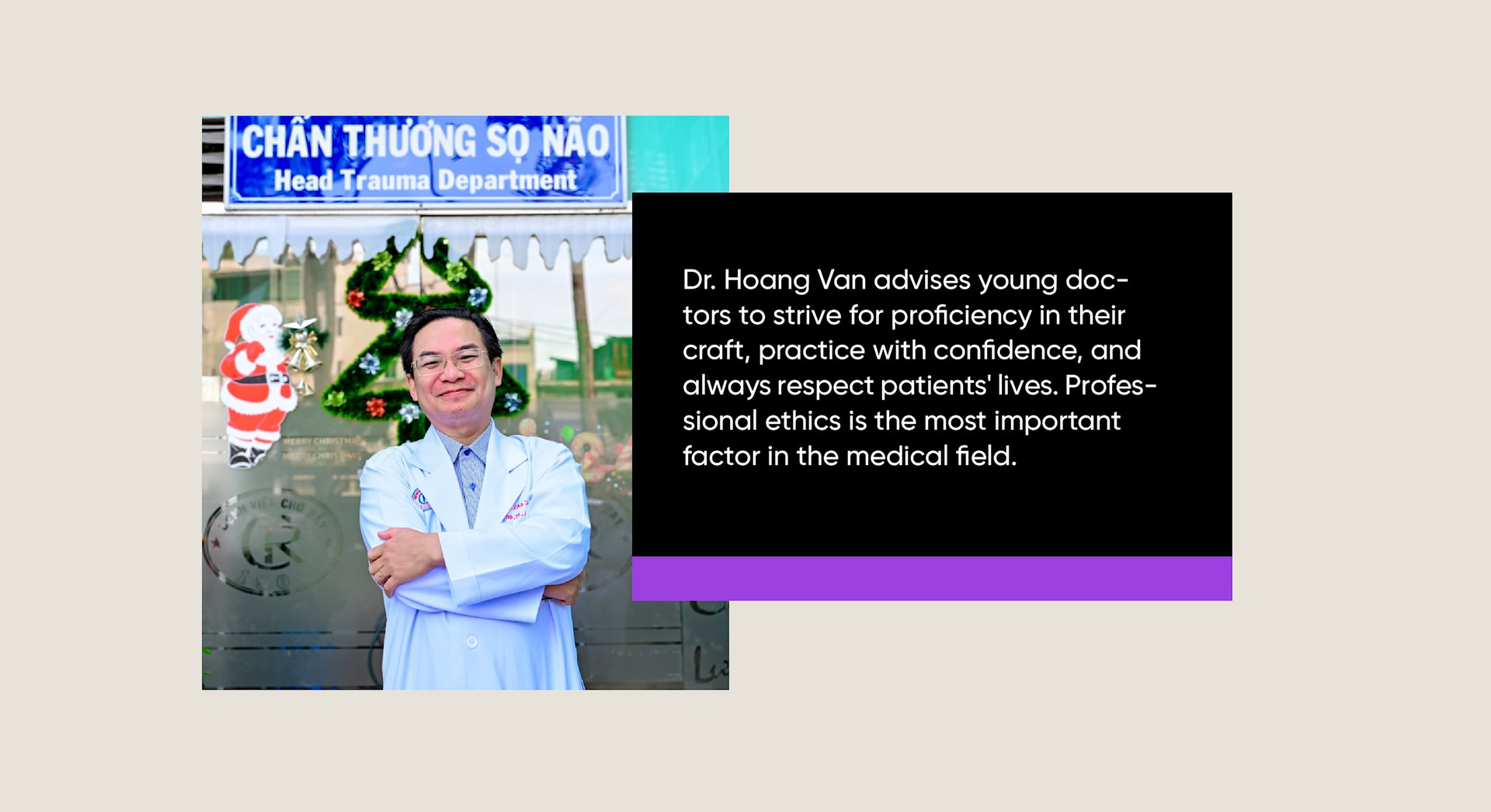

15. Finally, do you have any advice for young people who want to pursue a medical career and participate in social activities like you?
Dr. Hoang Van: For young people pursuing medicine, I see that it is a strenuous field in both study and practice. If you pursue a medical career, you will spend three years of high school preparing and focusing on entrance exams for medical school, six years of "youth" learning general medicine, three years after graduation to gain experience and certification to treat patients, and many more years to become a well-known and valuable doctor in the specialized treatment system. Therefore, when choosing medicine, you must have a heart that loves patients. As for participating in social work, I think doctors should use their expertise and join organizations to participate in medical missions in localities, helping the place where you were born as a duty and sentiment. Learn to be happier when helping others (like giving is receiving), humble yourself to understand the circumstances of the poor and those in need of help, and more importantly, always maintain clarity and sensitivity to help the right people and the right things.
Thank you, Dr. Hoang Van, for this conversation and meeting. Tomorrow, there is a light rain forecast for Saigon, making the weather cooler and more pleasant. Wishing you good health and smooth sailing in all your endeavors.
